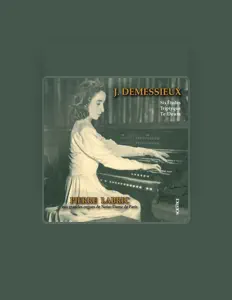
Classical
France
Marcel Dupré
Άλλα άλμπουμ από Marcel Dupré
Σχετικά με τον/την Marcel Dupré

Ιδιαίτερη πατρίδα
Rouen, France
Τόπος γέννησης
1886
Είδος
Classical
Marcel Dupré was a towering figure in 20th-century French organ music, a composer, prodigious improviser, and virtuoso performer par excellence whose composition teacher, Widor, pronounced part of the Three Preludes and Fugues Op. 7 (1914) “unplayable.” His legacy includes a who’s who of distinguished pupils, foremost among them Olivier Messiaen. Born in Rouen in 1886, he was almost predestined for the organ loft. His father was organist at the city’s Saint-Ouen Abbey, presiding over its magnificent Cavaillé-Coll instrument, which was characterized by its myriad orchestral colors that made a decisive impression on the young Marcel. Color is a key component in Dupré’s organ music, which embraces the symphonic tradition particularly strikingly in the Symphonie-Passion, Op. 23 (1924), and its successor, the Deuxième Symphonie, Op. 26 of 1929. The former started life as an improvisation on the famous Wanamaker organ in Philadelphia—Dupré’s life as an in-demand recitalist encompassed eight transcontinental tours, and several cycles of the complete Bach organ works played from memory. He died in 1971, maintaining to the end that “art is no longer art if it renounces the heart.”
Παρόμοιο περιεχόμενο με τον/την: Marcel Dupré
Ανακαλύψτε περισσότερη μουσική και καλλιτέχνες παρόμοιους με τον/την Marcel Dupré, όπως τους Pierre Labric, Daniel Roth, Ben van Oosten



















































































































